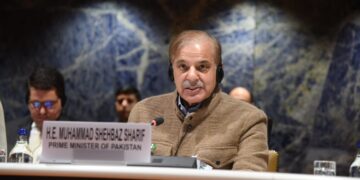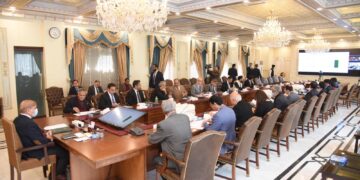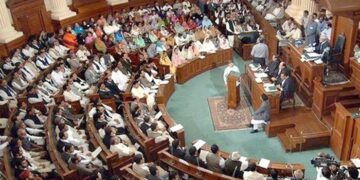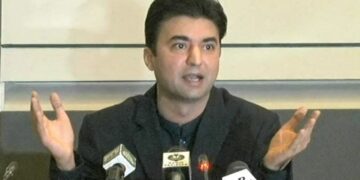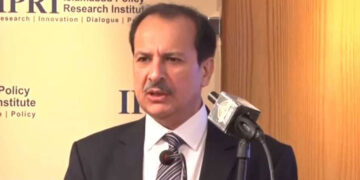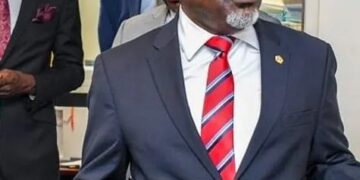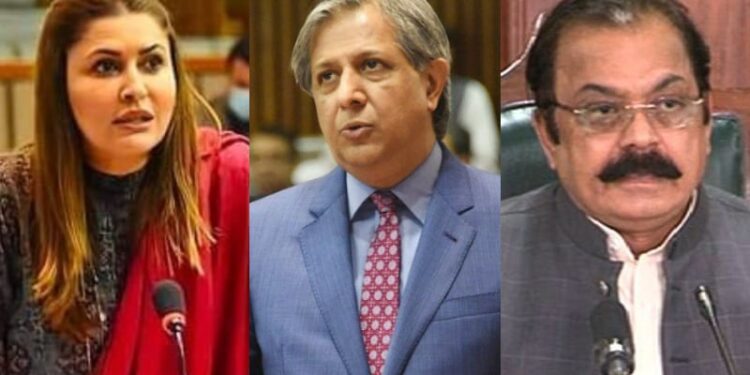After the Islamabad High Court (IHC) ordered the heads of government to explain how enforced disappearances “became state policy,” the federal government formed a seven-member committee on Monday to “deliberate a policy” relating to the country’s enforced disappearances.
The committee will be led by Minister for Law and Justice Azam Nazeer Tarar and will include Minister for Interior Rana Sanaullah, Minister for Power Alleviation and Social Safety Shazia Marri, Minister for Communications Asad Mahmood, Minister for Defense Production Muhammad Israr Tareen, Minister for Maritime Affairs Faisal Ali Subzwari, and Minister for Science and Technology Agha Hassan Baloch, according to a notification issued by the Ministry of Interior.
The committee’s recommendations or report will be given to the federal cabinet for further consideration. It stated that “the interior ministry will offer secretarial support to the committee.”
The committee will also be authorised to co-opt eminent jurists, representatives of human rights organisations, and other members “it considers appropriate,” according to the notification.
The development comes after IHC Chief Justice Athar Minallah directed the federal government to serve notices on former president retired Gen Pervez Musharraf and all subsequent chief executives, including Imran Khan and the current premier Shehbaz Sharif, for following a “undeclared tacit approval of the policy regarding enforced disappearances” in a 15-page order issued on Sunday.
After their petitions were set for final arguments, he issued the orders in a case involving the disappearance of journalist Mudassar Mahmood Naro and five other people, but the federal government requested an adjournment.
“Retired General Pervez Musharraf and all other successor chief executives, i.e. former prime ministers, including the incumbent holder of the office, shall submit their respective affidavits explaining why the court may not order proceedings against them for alleged subversion of the Constitution in the context of undeclared tacit approval of the policy regarding enforced disappearances, thus putting national security at risk by all,” Justice Minallah wrote in his order.
“In his memoirs In the Line of Fire, Pervez Musharraf honestly admitted that ‘enforced disappearances’ was an undeclared policy of the state,” he claimed.
The judge stated that it was the responsibility of each chief executive to “rebut the presumption and explain why they should not be convicted for high treason.”
He went on to say that the military forces have made and continue to make sacrifices for the country’s security and integrity, and that every citizen should appreciate them. Otherwise, the country’s and its people’s security and integrity would be jeopardised.
“The involvement or even the perception of the military forces in activities amounting to violations of human rights and freedom of the population damages and undermines the rule of law,” the order added.
According to Justice Minallah, if the missing persons are not found or if the federal government fails to take effective and demonstrable actions/decisions, the current and former interior ministers must appear in person to explain why the petitions may not be decided, and exemplary costs will be imposed on them for the unimaginable agony and pain endured by the petitioners due to a lack of response and empathy in dealing with their grievances.
“In the event of claimed disappearances in the future, the learned attorney general shall satisfy the court as to why criminal charges may not be directed to be registered against the top executives of the federation and the concerned provinces,” the order stated.
Meanwhile, the court ordered the federal government to either present the missing people before the court on the scheduled day (June 17) or “justify the state’s failure to thoroughly investigate and trace their whereabouts.”
